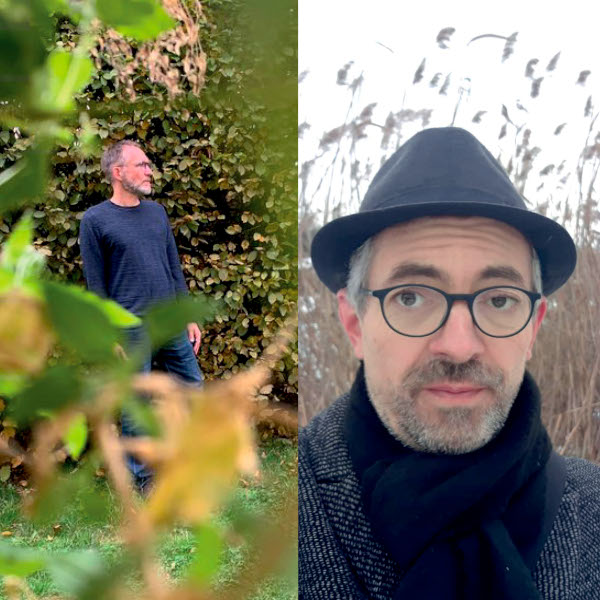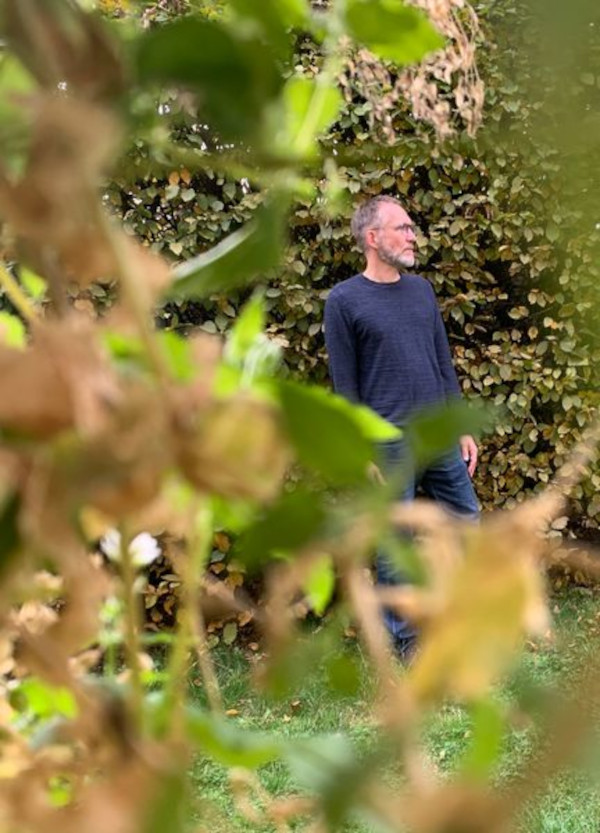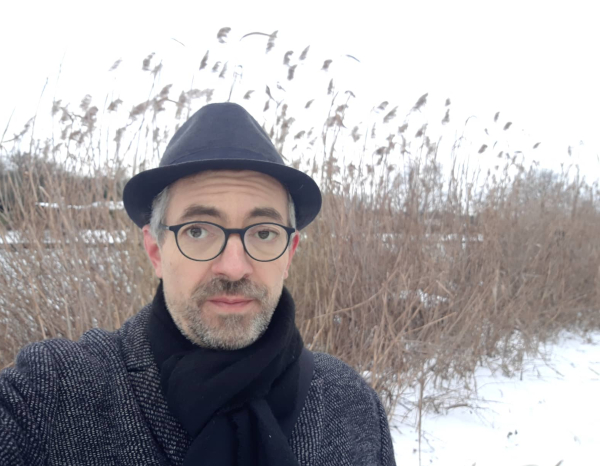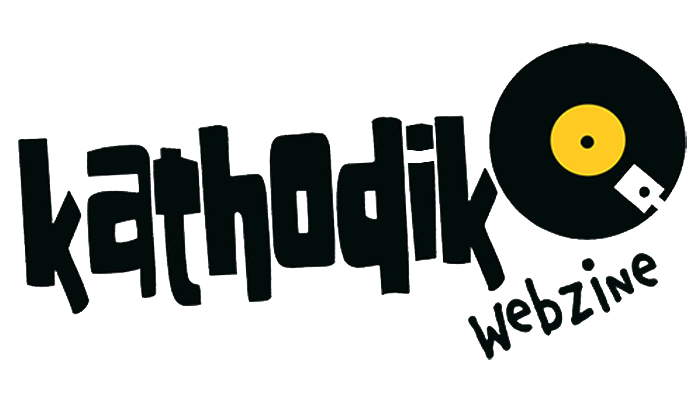
Our second meeting is a “virtual” dialogue with music blogs present everywhere on the web. This time, after the interview with Phil Freeman – Burning Ambulance (here), based in the United States, we go to Berlin, Germany. This time it did not happen out of the blue but it was a request from Uwe Schneider, one of the deus ex machina along with Michael Göttert of the German-English music blog Africa Paper. Everything came up by the interview that Kathodik, through Maria Luisa Bonometti, did to Munsha (here), the Italian artist living in East Berlin. They are the creators of African Paper, they quite liked the interview and translated it in German and English and then published it on their blog. You can find more about the enjoyable interview I had with them, so I suggest you start reading.
How did the online magazine come about?
Uwe: We started the African Paper about 8 years ago. At that time we were still writing for a number of other magazines, but we wanted to build our own framework, independent of already existing music communities.

What ideas were there? Which models did you refer to? Where did you get the cue from?
Michael: Of course, there’s always the danger of sounding a bit conceited and pretentious, and to a certain extent it has become a bit of a cliché to point out that one doesn’t want to be pigeonholed, but I guess that is how it was. There was a time when (post-)industrial (however loose we use that term) – and we definitely have some of our roots there – , was a kind of umbrella term for a plethora of different music(s). If you listen to – say – “The Elephant Table Album” (https://www.discogs.com/de/release/102803-Various-The-Elephant-Table-Album-A-Compilation-Of-Difficult-Music), you’ve got this incredibly wide variety of sounds and concepts. While a unifying aesthetic may certainly be important and sometimes necessary, it can be limiting and limited. There was a certain dissatisfaction with magazines that followed very closely an aesthetic adhering too much to the rules of certain subcultures. We could also sum up our motivation(s) rather profanely in one sentence: we wanted to write about music which we really enjoyed and which we felt had a lot to say and offer.

Why did you choose the name African Paper?
Uwe: To be honest, we wanted to create a bit of confusion with the name. From the beginning, our music selection was international and not geared to a specific region. Our roots as writers and music fans go back to the post industrial scenes of the 90s, and it appealed to us that the name didn’t fit in very well with that. We found it in a booklet, by the way, and I can’t even remember which one.

Michael: This is our great founding myth. After we had gone online, we were wondering from what booklet that term exactly came and then it turned out, we couldn’t find it anymore.
Do you deal mainly with music in the magazine? Which genres do you cover?
Uwe: A large part, maybe 90%, of our articles deal with music, but we are open in all possible directions – visual arts, films and especially literature come up at certain intervals. In principle, we are very interested in other media, and if we were a larger team, we would certainly expand that even more. A lot of the music we write about is in a multimedia context anyway: Music theater, sound installations, music for film and so on.
It’s always popular to say that you don’t care about genres and in principle we are open to very different kinds of music. De facto, however, you have your preferences and – perhaps not unimportant for writers – things you already have experience with and have something to say about. Basically, if you love sound art, noise, free improvisation, psychedelia, experimental electronics, but also a bit more adventurous folk and world music, you will certainly find something interesting with us.
Michael: It would be great to write more often about literature, films etc. but there is the dreaded time that is, as we all know, unfortunately, rather limited. So we focus on music and are glad when we can fit in something from another medium.

Besides the institutional site you are present in social media? If so, which do you prefer to use?
Uwe: To be honest, we are very lazy and media-shy in a – hopefully sympathetic – old school way and only use Facebook and Instagram as signposts to our articles. Especially the latter has brought us quite a bit of attention, considering our niche programme. If there is any reader with media expertise, who likes our music selection and would like to curate a radio programme for us, we would be very happy and buy a drink every now and then.
Do you have an idea of who your readers are? Do you have any feedback from your readers?
Michael: That happens occasionally and it is always a pleasure when somebody reacts to a text you’ve written. Just recently I got an email from somebody who had had a look at our website and was quite enthusiastic. These moments are few and far between but they give you at least for a short moment the impression that you are not writing for and into some kind of void. Mind you, I think both of us would continue writing even if our only audience was each other.
Are you planning a printed edition of the magazine?
Uwe: Some time ago, a book publisher we know well came up with the idea of publishing a book with a selection of our interviews with musicians. Let’s see what comes of it and maybe we should be a bit more pushy in that respect. Apart from that, we are quite content to publish our texts online, especially in terms of reach.
Michael: Both of us started writing in and for printed magazines and I’m still a big fan of the physical product – be it vinyl, CDs, tapes, or printed matter. But we also see the benefits of online publishing.
Are you open to collaborations with other magazines, online/printed, associations, bodies, etc.?
Michael: In general we are quite open to that. I think it’s often more a matter of (lack of) time than of a reluctance to interact or collaborate with others. Of course, if there’s somebody reading this and feeling that we share some common ground, feel free to contact us and we see if we can figure something out.
Uwe: There have been a few smaller collaborations in the past, for example we were involved in the organisation of the ‘Epicurean Escapism’ festival, which also featured texts by us. And if that counts, we were very happy about the shared publication of the interview with Berlin based musician Munsha, which was published in Italian by Kathodik (https://www.kathodik.org/2022/03/05/una-nessuna-e-centomila-munsha-racconta-munsha/) and in German and English by us (http://africanpaper.com/2022/03/26/eine-keine-hunderttausend-munsha-uber-munsha/).
Any future projects beyond the online magazine?
Uwe: There are no firm plans for this at the moment, but a multi-part compilation with rare recordings of musicians who are often the subject of our work would certainly be interesting.
Link: African Paper Home Page
Link: African Paper Facebook Page
Link: African Paper Instagram Page
